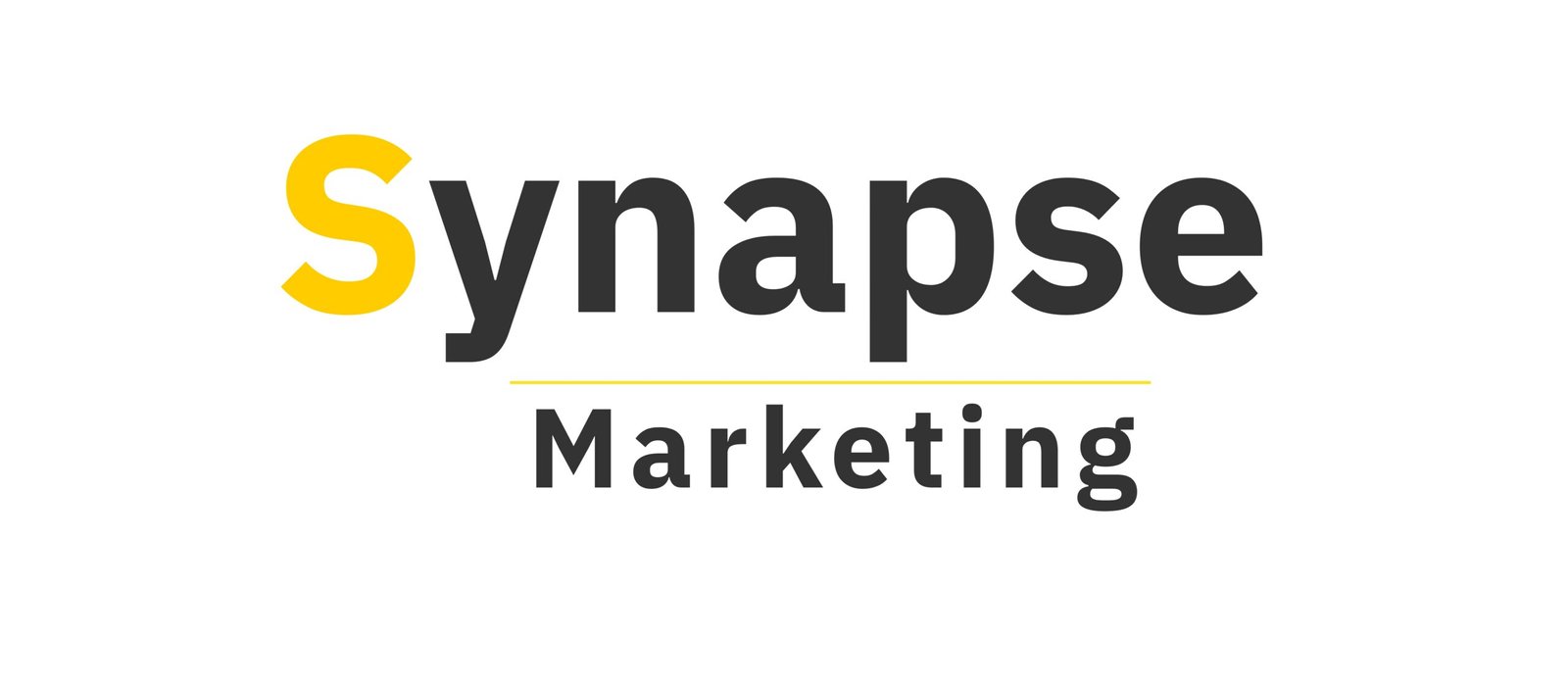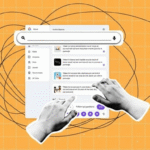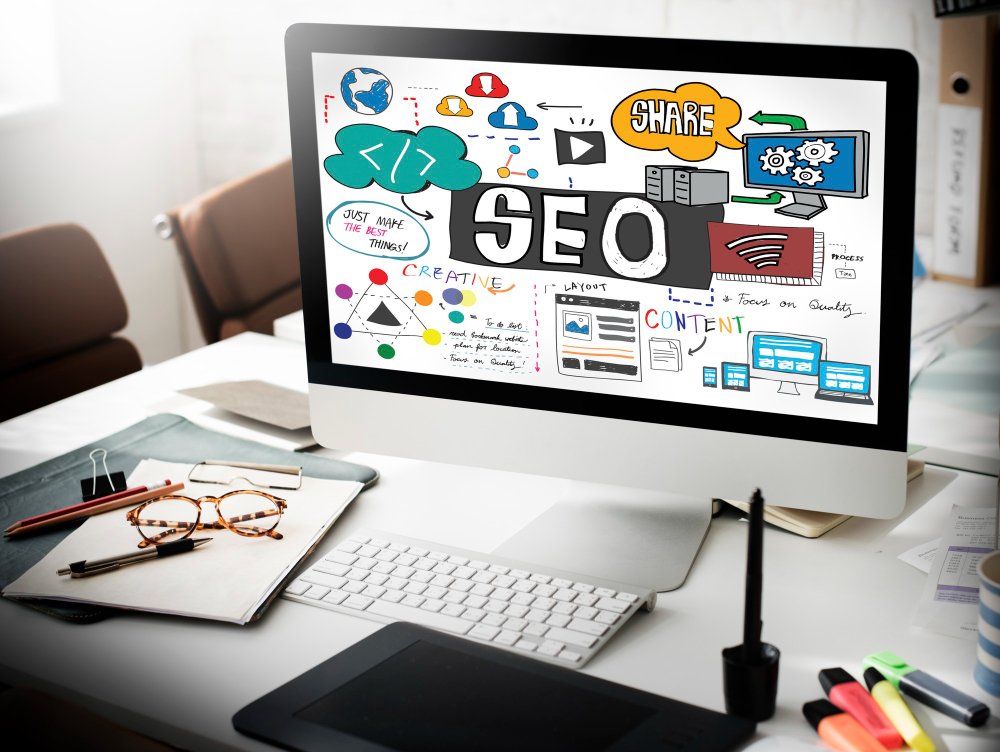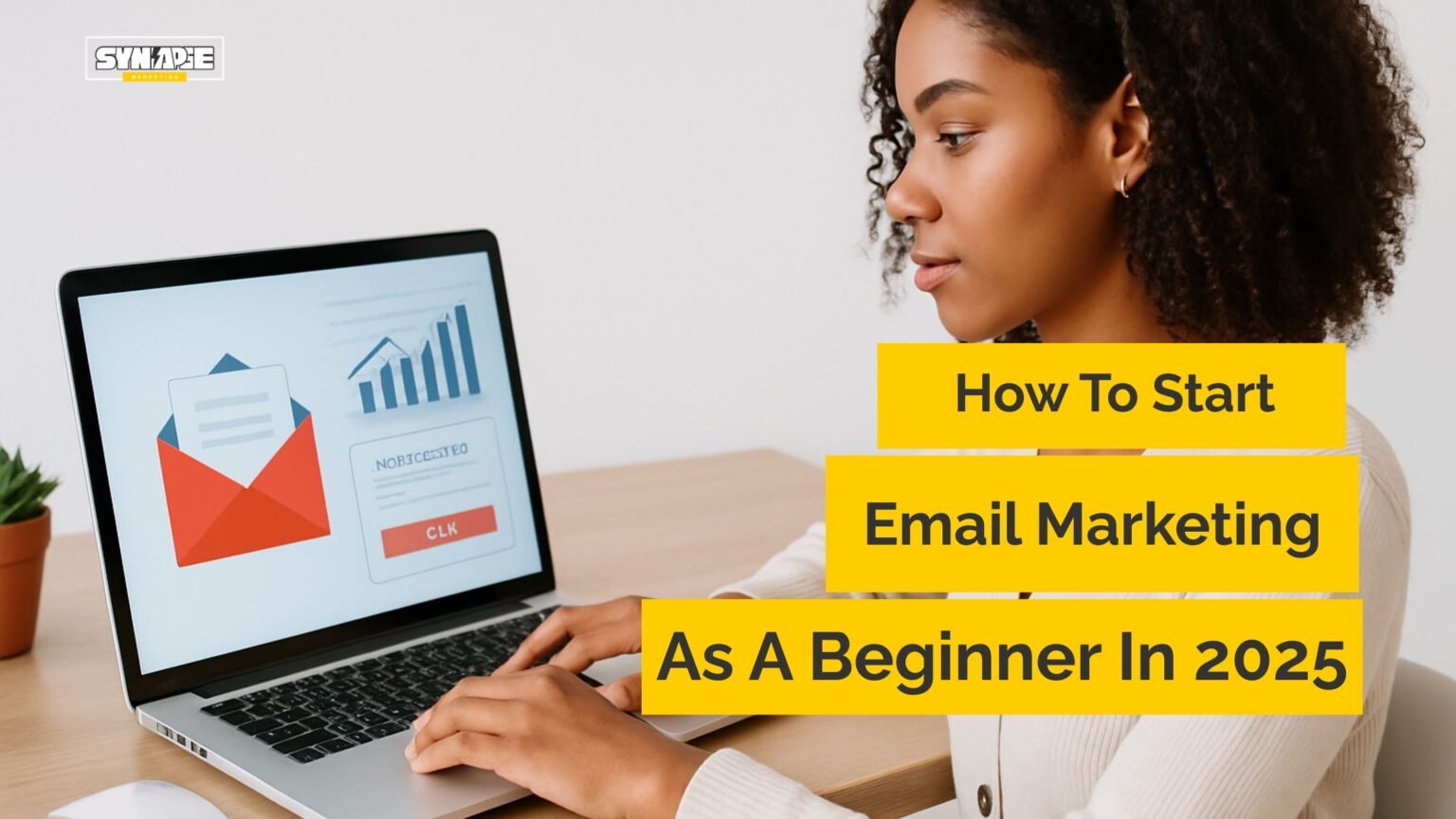- In today’s fast-paced digital landscape, small businesses are constantly seeking new ways to stay ahead of the competition. One of the most powerful tools at their disposal is Artificial Intelligence (AI). AI marketing strategies are not just a buzzword; they’re transforming how small businesses connect with their customers, optimize operations, and scale their efforts efficiently. In 2025, the demand for AI-driven marketing solutions is more pressing than ever, and businesses that adopt these technologies early will not only gain a competitive edge but also position themselves as innovative leaders in their industries.
AI marketing for small businesses isn’t just about automating tasks—it’s about making smarter decisions through data-driven insights. From predictive analytics to personalized customer experiences, AI empowers businesses to make decisions that are more informed, accurate, and timely. The tools available today allow businesses of all sizes to leverage AI’s potential, but it’s particularly beneficial for small businesses that often have fewer resources.
In this publication, I’ll walk you through how AI marketing tools can change the way you approach customer engagement, lead generation, and ROI measurement. I’ll also share actionable strategies and real-world examples that show how businesses like yours are already reaping the benefits of AI marketing strategies. Whether you’re a founder, marketing executive, or small business owner, this guide will provide you with the information you need to understand and implement AI marketing in your strategy.
Understanding AI Marketing: What It Means for Small Businesses
AI marketing might sound like a complex concept, but at its core, it’s about using artificial intelligence technologies to enhance marketing efforts. For small businesses, AI offers a unique opportunity to automate time-consuming tasks, improve customer interactions, and make data-driven decisions. But how exactly does it work, and why should small businesses care?
AI-powered marketing tools rely on advanced algorithms and data analytics to automate various marketing functions. These can range from simple tasks, like email marketing automation, to more sophisticated applications, such as predictive customer segmentation and personalized content generation. At its best, AI in marketing can provide businesses with the insights and automation they need to stay relevant in an increasingly competitive market.
One of the primary benefits of AI marketing for small businesses is its ability to optimize customer experiences. With the help of machine learning algorithms, small businesses can segment their customer base more effectively, delivering targeted messages at the right time. Whether it’s sending the right email to the right person or crafting personalized offers based on past purchase behavior, AI makes these actions possible without requiring a large team of marketers.
Additionally, AI-driven marketing strategies enable businesses to analyze vast amounts of customer data in real time. This allows for continuous optimization of marketing campaigns, ensuring that your efforts remain effective. It’s like having a digital assistant who is constantly learning and improving your campaigns based on customer behavior.
Ultimately, the integration of AI marketing tools helps small businesses deliver a personalized, engaging experience to their customers, all while saving time and reducing manual effort. For businesses with limited resources, this is a game-changer. AI doesn’t just make marketing more efficient—it makes it more effective.
Top 5 AI Marketing Tools for Small Businesses in 2025
When it comes to implementing AI marketing Strategies, having the right tools is crucial. With countless AI marketing tools available today, small businesses can leverage various solutions that align with their specific needs—whether it’s automating content creation, managing customer relationships, or improving social media engagement. Below, I’ll highlight some of the top AI marketing tools small businesses should consider in 2025.
1. AI-Powered Content Creation Tools
For small businesses looking to scale their content marketing efforts, AI-powered content creation tools are essential. Tools like Jasper and Copy.ai help businesses generate high-quality written content quickly and efficiently. These platforms use machine learning algorithms to understand the nuances of your brand and create blog posts, social media captions, and ad copy that resonate with your audience.
By automating content creation, small businesses can save valuable time and resources. What’s more, AI content generation ensures consistency in tone, style, and messaging, providing a cohesive experience across all channels.
2. Customer Relationship Management (CRM) with AI
Managing customer relationships is another area where AI shines. Tools like HubSpot and Salesforce offer AI-driven CRM capabilities that help businesses track customer interactions, segment their audience, and predict future behavior. With AI, small businesses can better understand their customers’ needs and tailor their marketing efforts accordingly.
AI CRM tools also automate repetitive tasks such as follow-ups, saving business owners and marketing teams time to focus on more strategic activities.
3. AI for Social Media Marketing
Social media management is time-consuming, but AI marketing tools like Hootsuite and Sprout Social simplify the process by automating scheduling, content curation, and even customer interactions. With the help of AI, small businesses can analyze trends, track engagement, and create content that speaks directly to their target audience. These tools also offer in-depth analytics to measure campaign performance, allowing businesses to make data-driven decisions in real time.
4. Email Marketing Automation with AI
Email marketing remains one of the most effective channels for small businesses, and AI email marketing platforms like Mailchimp and Klaviyo make it even more powerful. These platforms leverage AI to personalize email content based on customer preferences and behaviors. For example, AI can help determine the best time to send emails, which subject lines are most likely to generate clicks, and how to segment your audience for optimal engagement.
5. AI Analytics and Reporting Tools
Finally, AI analytics platforms like Google Analytics and Hotjar offer invaluable insights into how customers interact with your website and marketing campaigns. These tools use AI to analyze user behavior, segment your audience, and provide actionable recommendations for improving performance. Small businesses can leverage these insights to optimize their digital marketing strategies and drive growth.
Implementing AI in Your Marketing Strategy: 5 A Step-by-Step Guide
Implementing AI marketing in your small business strategy can seem daunting, but with the right approach, it can transform how you engage with customers and optimize your marketing efforts. In this section, I’ll guide you through the process of incorporating AI into your marketing strategy, ensuring that you make the most of these powerful tools.
1. Assessing Your Business Needs for AI Marketing
Before diving into the world of AI marketing, it’s essential to assess what your business truly needs. Are you looking to improve customer segmentation? Enhance content creation? Or perhaps you want to automate repetitive tasks to save time?
Start by identifying your pain points—whether it’s managing customer data, automating email campaigns, or gaining deeper insights into customer behavior. By defining your goals clearly, you can choose the right AI tools that align with your needs. AI-driven marketing strategies work best when they solve specific business problems, so the more targeted your approach, the more effective it will be.
2. Choosing the Right AI Tools
There are a wide variety of AI marketing tools out there, each offering different functionalities. Selecting the right tools for your small business can be overwhelming, but by narrowing down your options based on your needs, you’ll ensure a smooth implementation process.
For example, if your primary goal is to automate content creation, tools like Jasper or Copy.ai may be ideal. If customer segmentation and personalized marketing are your focus, consider a tool like HubSpot CRM, which uses AI to tailor messages and track customer journeys. Always prioritize tools that are scalable, easy to integrate with your existing systems, and offer a strong customer support network.
3. Setting Up and Training AI Systems
Once you’ve selected your AI marketing tools, the next step is to set them up and train them to perform according to your business requirements. For most AI-powered marketing automation tools, this involves feeding them with data—such as customer demographics, purchase history, and web behavior—so they can learn and improve their predictions over time.
Training your AI systems is crucial to ensuring they deliver the best possible results. You’ll need to input accurate data, customize settings, and continuously monitor performance to make sure the system is working as expected. The more you invest in the training phase, the better your AI marketing system will perform.
4. Monitoring and Optimizing AI Marketing Performance
AI is not a set-and-forget tool. One of the significant advantages of AI-powered marketing tools is their ability to continuously improve through data and insights. However, this requires ongoing monitoring and optimization.
Regularly track key performance indicators (KPIs) such as customer engagement, conversion rates, and return on investment (ROI). With tools like Google Analytics and Klaviyo, you can measure how well your campaigns are performing and identify areas for improvement. Use the data to refine your AI marketing strategy, whether that’s tweaking your content, adjusting customer segmentation, or rethinking your automation workflows.
5. Scaling Your AI Marketing Strategy as Your Business Grows
As your business grows, so should your AI marketing strategy. In the beginning, you may have been focusing on small-scale automation and customer insights, but as you scale, you’ll want to explore more advanced AI marketing strategies such as predictive analytics, personalized advertising, and AI-powered content creation.
Scaling involves expanding the use of AI tools across different areas of your marketing efforts. For example, you might move from automating social media posts to deploying AI chatbots for customer support, or use AI-driven analytics to guide your SEO strategy. By taking a phased approach, you can gradually harness more sophisticated AI marketing solutions as your business continues to grow.
Case Studies: Small Businesses Thriving with AI Marketing
To truly understand the impact of AI marketing strategies, it’s helpful to look at businesses that have successfully implemented these tools. Let’s take a look at a few case studies of small businesses that have transformed their marketing through AI-powered tools.
Case Study 1: AI-Driven Customer Support in Retail
One small retail business in the fashion industry was struggling with providing timely customer support. By integrating an AI chatbot on their website, they were able to automate responses to common customer inquiries, providing instant support 24/7. As a result, customer satisfaction increased by 35%, and the business saw a significant reduction in customer service costs. AI-driven customer support also freed up the team to focus on more complex customer issues, leading to better overall efficiency.
Case Study 2: Personalized Email Campaigns Boosting Engagement
A local e-commerce store used AI email marketing tools like Mailchimp to automate and personalize email campaigns. By segmenting their customer base based on past purchases, location, and browsing behavior, they were able to send targeted promotions that resonated with individual preferences. As a result, the business saw a 50% increase in email open rates and a 30% increase in revenue from email campaigns. AI made it possible to send the right message to the right customer at the right time.
Case Study 3: Social Media Automation Enhancing Brand Presence
A small marketing agency used AI social media management tools such as Sprout Social to streamline its content creation and scheduling. The platform analyzed engagement trends to suggest the best times to post and the types of content that would resonate most with the audience. With AI-driven social media strategies, the agency increased its social media engagement by 40% and attracted more leads, thanks to a more consistent and targeted approach.
Key Takeaways from These Success Stories
These case studies show the versatility and power of AI marketing tools for small businesses. Whether it’s improving customer support, increasing engagement through personalized content, or streamlining social media efforts, AI-driven marketing strategies can help businesses of all sizes reach their goals more efficiently.
Overcoming Challenges in AI Adoption for Small Businesses
While AI marketing offers immense benefits, small businesses often face a range of challenges when adopting these technologies. From the initial setup to ongoing maintenance, integrating AI tools into your business strategy isn’t always smooth sailing. However, understanding these obstacles and preparing for them can make the transition more manageable and ultimately rewarding.
Common Barriers to AI Adoption in Small Businesses
One of the biggest hurdles small businesses face is the cost of AI tools. While there are affordable options available, many small businesses may still perceive AI marketing solutions as a significant investment. This is especially true for businesses with limited budgets, where allocating resources to AI tools might seem risky.
Another challenge is the lack of technical expertise. Implementing AI requires a certain level of knowledge and familiarity with the tools, which can be daunting for businesses without a dedicated IT or data team. Many small businesses may struggle to understand the intricacies of AI and how to best leverage it in their marketing strategy.
Finally, data privacy and security concerns can prevent businesses from fully adopting AI-powered marketing tools. Small businesses often handle sensitive customer information, and the thought of AI systems analyzing that data may raise alarms about compliance and security risks.
Strategies to Overcome These AI Marketing Challenges
While these challenges can seem daunting, they are by no means insurmountable. One of the first steps is to start small. Instead of diving into complex AI tools that require significant investment, small businesses can begin with cost-effective solutions. Many AI marketing tools offer tiered pricing models, allowing businesses to start with basic features and scale as their needs grow.
To tackle the lack of technical expertise, consider partnering with AI consultants or utilizing user-friendly tools with comprehensive support. Platforms like Mailchimp and HubSpot offer AI capabilities with easy-to-understand dashboards and extensive learning resources, making them perfect for small businesses that don’t have dedicated tech teams.
Regarding data privacy concerns, businesses should ensure they are compliant with data protection regulations like the GDPR. Many AI tools provide built-in privacy features, such as data encryption and customer consent management, to help businesses safeguard sensitive information. It’s crucial to stay informed about compliance requirements and ensure your AI marketing strategies align with industry best practices.
Ensuring Ethical Use of AI in Marketing
As AI marketing becomes more integrated into small business strategies, it’s essential to adopt ethical practices. The use of AI should enhance customer experiences without exploiting their data or infringing on privacy. Ethical considerations include transparent data usage policies, obtaining customer consent, and ensuring that AI algorithms do not perpetuate biases.
Small businesses can take proactive steps to maintain ethical standards by choosing AI tools that emphasize fairness and transparency in their algorithms. It’s also helpful to stay updated on best practices and continually evaluate the impact of AI marketing efforts on customer trust and brand reputation.
Cost-Effective Ways for Small Businesses to Integrate AI
If budget is a concern, there are ways to introduce AI marketing tools without breaking the bank. Many platforms offer free trials, allowing businesses to test the tools before committing financially. Additionally, businesses can leverage open-source AI technologies, which provide flexibility and lower costs compared to proprietary tools. By choosing the right tools and implementing them gradually, small businesses can integrate AI in a cost-effective and scalable way.
The Future of AI in Small Business Marketing
The potential of AI marketing is only beginning to be realized, and the future is filled with exciting possibilities for small businesses. As AI technology continues to evolve, so too will the opportunities for small businesses to harness its power for even greater marketing success.
Emerging AI Technologies for Small Business Marketing
In the coming years, we can expect AI to become even more integrated into small business marketing strategies. Emerging technologies like natural language processing (NLP) and predictive analytics will allow businesses to personalize customer experiences even further. For example, NLP can help businesses create content that resonates with specific customer segments by analyzing and understanding customer emotions, sentiment, and language patterns.
AI chatbots will also evolve, offering more sophisticated and human-like interactions with customers. These AI-driven chatbots will not only handle basic customer queries but also assist with complex tasks such as booking appointments, making purchases, or providing personalized recommendations, all in real time.
Preparing Your Business for Future AI Developments
To stay ahead of the curve, small businesses should begin preparing for the future of AI marketing today. This means investing in AI tools that are adaptable and scalable, so they can evolve with emerging technologies. It also means staying informed about the latest developments in the AI space, attending webinars, and following industry leaders to ensure that your business is always at the forefront of AI adoption.
One key aspect of preparing for the future is data collection. As AI becomes more advanced, businesses will need even more data to feed their AI tools and optimize marketing strategies. Start by building a strong data collection framework that ensures the data you gather is accurate, compliant, and useful for AI applications.
Long-Term Benefits of Embracing AI Marketing in SMBs
The long-term benefits of embracing AI marketing are vast. Over time, small businesses that invest in AI tools will experience increased efficiency, improved customer experiences, and higher profitability. By automating repetitive tasks and gaining deeper insights into customer behavior, businesses will be able to focus on strategic decisions that drive growth and innovation.
Additionally, adopting AI marketing strategies will enable small businesses to stay competitive in an increasingly digital world. The businesses that are most successful in the future will be those that have embraced AI and used it to create personalized, data-driven marketing experiences that resonate with customers.
Conclusion: Embracing AI for Sustainable Growth
Finally, AI marketing offers small businesses the opportunity to level the playing field with larger competitors by automating tasks, gaining deeper insights, and enhancing customer experiences. As the technology continues to evolve, businesses that adopt AI early will be positioned to lead in their industries.
By following the strategies outlined in this guide, you can successfully integrate AI-powered marketing tools into your business, overcome common adoption challenges, and set your business on a path toward sustainable growth. Remember, the key to success lies in staying informed, selecting the right tools, and constantly optimizing your AI efforts for maximum impact.
Embrace AI now, and you’ll be equipped to navigate the future of marketing with confidence and agility.
AI marketing is no longer reserved for large enterprises. Small businesses, too, can harness the power of AI tools to optimize their marketing efforts, streamline operations, and enhance customer experiences. By choosing the right tools, addressing challenges, and staying informed about emerging trends, small businesses can thrive in the evolving digital landscape.
By embracing AI marketing in 2025, small businesses can gain a significant advantage over competitors who are slow to adopt these technologies. Whether it’s through automation, personalization, or better customer insights, AI-powered marketing strategies have the potential to transform your business for years to come.
Frequently Asked Questions on AI Marketing Strategies for Small Business
As small businesses increasingly adopt AI marketing strategies, it’s important to address some common questions that often arise. Below, I’ve compiled a list of frequently asked questions to help clarify any doubts and provide actionable insights for your business.
What is AI Marketing and Why Should Small Businesses Use It?
AI marketing refers to the use of artificial intelligence technologies to automate, optimize, and personalize marketing efforts. For small businesses, AI is a game-changer because it allows them to compete on a level playing field with larger companies by improving customer targeting, content personalization, and campaign automation. By leveraging AI marketing tools, businesses can save time, reduce costs, and increase engagement, all while improving their overall return on investment (ROI).
AI enables businesses to analyze vast amounts of data quickly and efficiently, providing insights that can drive more informed decision-making. This not only enhances the customer experience but also helps businesses make smarter marketing choices.
How Can AI Improve My Small Business Marketing Efforts?
AI can improve small business marketing in a variety of ways. First, it automates time-consuming tasks like content creation, email campaigns, and customer follow-ups, which frees up your team to focus on more strategic activities. Second, AI helps personalize marketing efforts by analyzing customer data and tailoring messages to specific segments. For instance, AI-driven CRM tools can segment customers based on their past behavior, allowing you to send targeted offers at the right time.
Additionally, AI marketing tools can help you optimize your advertising campaigns by analyzing performance data in real-time. This allows you to adjust strategies on the fly to maximize results. AI also improves customer engagement through chatbots, personalized content, and predictive analytics, making interactions more efficient and relevant.
What Are Some Examples of AI Marketing Tools for Small Businesses?
There are many AI marketing tools designed specifically for small businesses, each focusing on different aspects of marketing:
- Jasper: An AI-powered content creation tool that helps businesses generate high-quality blog posts, social media updates, and other written content quickly.
- HubSpot CRM: A comprehensive AI-powered CRM that allows businesses to manage customer relationships, segment audiences, and automate follow-ups.
- Mailchimp: A tool that automates email marketing campaigns and personalizes content based on customer behavior, helping businesses improve their email open rates and conversions.
- Hootsuite and Sprout Social: These AI-powered social media management tools help businesses automate posts, track engagement, and gain insights into social media performance.
- Google Analytics: An AI-driven analytics tool that provides valuable insights into customer behavior, website performance, and conversion rates.
These tools are user-friendly and scalable, making them ideal for small businesses looking to integrate AI marketing into their operations.
What Are the Common Challenges Small Businesses Face When Adopting AI Marketing?
While AI marketing offers numerous benefits, small businesses face several challenges when adopting this technology:
- Cost: AI marketing tools can seem expensive, particularly for businesses with limited budgets. However, many AI tools offer flexible pricing plans, allowing small businesses to start with essential features and scale as they grow.
- Lack of Expertise: Many small business owners may not have the technical knowledge required to set up and optimize AI marketing systems. It’s crucial to choose tools that offer easy-to-use interfaces and comprehensive support.
- Data Privacy Concerns: Small businesses may worry about how AI tools handle customer data, especially regarding privacy and compliance. To mitigate this, businesses should choose AI tools that adhere to data protection regulations such as GDPR and offer robust security features.
Despite these challenges, the benefits of AI-powered marketing far outweigh the obstacles, and businesses can overcome them by starting small, seeking professional advice, and ensuring compliance with data privacy laws.
How Do I Get Started with AI Marketing for My Business?
Getting started with AI marketing doesn’t have to be overwhelming. Here’s a step-by-step guide to help you begin:
- Identify Your Marketing Needs: What aspects of your marketing could benefit from automation or optimization? This could be anything from content creation to customer segmentation or email marketing automation.
- Choose the Right AI Tools: Based on your needs, select the AI marketing tools that align with your business goals. Start with user-friendly, scalable platforms like HubSpot CRM or Mailchimp that offer easy implementation.
- Integrate and Train: Set up your chosen AI tools and train them with the relevant data, such as customer profiles, past purchase behavior, and engagement metrics. Don’t forget to continuously monitor their performance.
- Monitor and Optimize: Once your AI systems are in place, track their performance and make adjustments based on the data. AI-powered analytics tools will provide real-time insights into how your campaigns are performing, allowing you to optimize them for better results.
- Scale Up: As your business grows, you can expand your use of AI marketing tools to include more advanced strategies, such as predictive analytics and personalized advertising, to continue driving growth.
Starting with a simple, well-targeted AI marketing strategy can help you reap the rewards without feeling overwhelmed.
References:
- AI Marketing Strategy for Small Business – TechRadar
- Harnessing AI in Small Business Marketing – Sprout Social
- Predictive Analytics for Small Businesses – Willdom
AI Marketing Strategies For Small Business

Leave a comment












